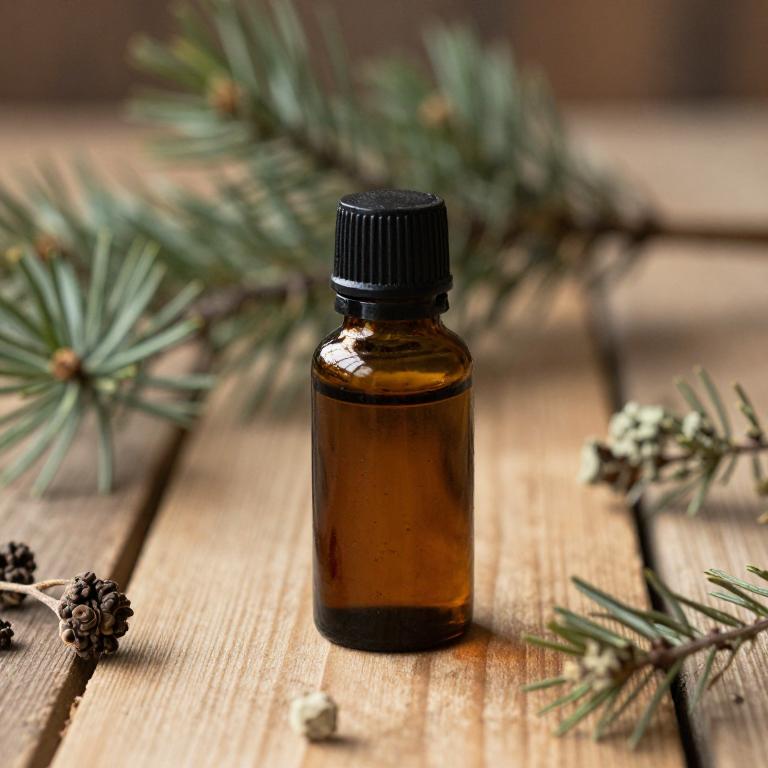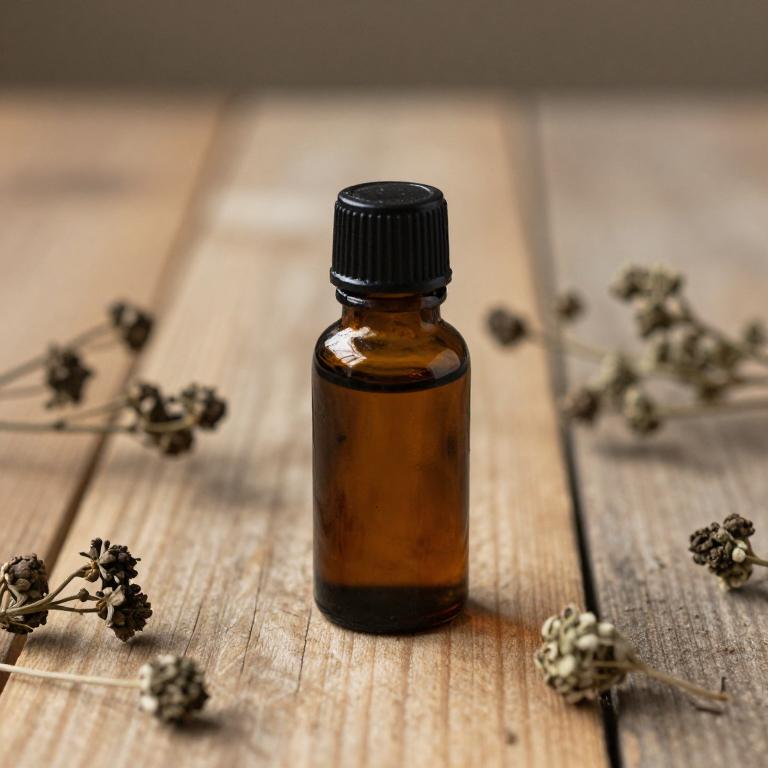10 Best Herbal Essential Oils For Asthma

Herbal essential oils have gained attention for their potential to alleviate asthma symptoms through their anti-inflammatory and bronchodilator properties.
Oils such as eucalyptus, peppermint, and lavender are commonly used in aromatherapy to help open airways and reduce respiratory congestion. These oils can be diffused, inhaled directly, or applied topically with a carrier oil to provide relief. However, it is important to note that while some studies suggest their benefits, they should not replace conventional medical treatments for asthma.
Always consult a healthcare professional before using essential oils, especially for individuals with severe asthma or known allergies.
Table of Contents
- 1. Eucalyptus (Eucalyptus globulus)
- 2. Scots pine (Pinus sylvestris)
- 3. Thyme (Thymus vulgaris)
- 4. Peppermint (Mentha piperita)
- 5. Ceylon cinnamon (Cinnamomum zeylanicum)
- 6. Rosemary (Rosmarinus officinalis)
- 7. English lavender (Lavandula angustifolia)
- 8. Olibanum (Boswellia carteri)
- 9. Ginger (Zingiber officinale)
- 10. Turmeric (Curcuma longa)
1. Eucalyptus (Eucalyptus globulus)

Eucalyptus globulus, commonly known as the Australian eucalyptus, produces a potent essential oil that has been traditionally used for its therapeutic properties.
This oil contains compounds like cineole and limonene, which are believed to have bronchodilatory effects, helping to ease respiratory congestion. Some studies suggest that eucalyptus oil may support respiratory health by reducing inflammation and mucus production in the airways. However, it is important to note that while it may offer some relief for mild asthma symptoms, it should not replace prescribed medical treatments.
Always consult a healthcare professional before using essential oils, especially for individuals with asthma or other respiratory conditions.
2. Scots pine (Pinus sylvestris)

Pinus sylvestris, commonly known as Scots pine, produces an essential oil that has been traditionally used for its aromatic and therapeutic properties.
This oil contains compounds such as alpha-pinene and beta-pinene, which are known for their anti-inflammatory and bronchodilatory effects, making it potentially beneficial for respiratory conditions like asthma. Studies suggest that the inhalation of Scots pine essential oil may help reduce airway inflammation and improve lung function in individuals with asthma. However, it is important to use this oil under the guidance of a qualified aromatherapist or healthcare professional to ensure safe and effective application.
While some preliminary research supports its use, more clinical trials are needed to fully establish its efficacy and safety for asthma treatment.
3. Thyme (Thymus vulgaris)

Thymus vulgaris, commonly known as thyme, is a herb widely used in traditional medicine for its potent essential oils, which contain compounds like thymol and carvacrol.
These oils are valued for their antimicrobial, anti-inflammatory, and bronchodilatory properties, making them a potential natural remedy for asthma management. When used in aromatherapy or as a supportive treatment, thyme essential oil may help alleviate respiratory symptoms by reducing airway inflammation and improving lung function. However, it is important to note that thyme oil should be diluted properly and used under the guidance of a qualified aromatherapist or healthcare provider to avoid adverse effects.
While preliminary research suggests its potential benefits, more clinical studies are needed to fully understand its efficacy and safety in treating asthma.
4. Peppermint (Mentha piperita)

Mentha piperita, commonly known as peppermint, is a widely used herb whose essential oil has been explored for its potential therapeutic benefits, including its possible role in managing asthma symptoms.
The essential oil contains powerful compounds such as menthol, which can act as a decongestant and bronchodilator, helping to ease breathing in individuals with asthma. Some studies suggest that inhaling peppermint oil may help reduce airway inflammation and improve lung function, although more research is needed to confirm its efficacy. Despite these potential benefits, it is important to note that peppermint oil should not replace conventional asthma treatments and should be used under the guidance of a healthcare professional.
As a natural remedy, peppermint essential oil can be a complementary therapy when integrated into a comprehensive asthma management plan.
5. Ceylon cinnamon (Cinnamomum zeylanicum)

Cinnamomum zeylanicum, commonly known as cinnamon bark, produces a rich essential oil that has been explored for its potential therapeutic benefits, including its possible role in managing asthma symptoms.
The oil contains compounds like cinnamaldehyde and eugenol, which exhibit anti-inflammatory and bronchodilatory properties that may help reduce airway inflammation and improve lung function. Some preliminary studies suggest that the oil's aromatic compounds may help ease breathing by relaxing the airway muscles, though more research is needed to confirm its efficacy. When used in diffusers or as a topical application, cinnamon essential oil may offer a natural alternative to conventional asthma treatments, though it should not replace prescribed medications.
As with any essential oil, it is important to use cinnamon oil cautiously, as it can cause skin irritation or allergic reactions in some individuals.
6. Rosemary (Rosmarinus officinalis)

Rosmarinus officinalis, commonly known as rosemary, produces essential oils that have been studied for their potential benefits in managing asthma symptoms.
These oils contain compounds like cineole and camphor, which possess anti-inflammatory and bronchodilatory properties that may help reduce airway inflammation and ease breathing. Some research suggests that inhaling rosemary essential oil could support respiratory function by improving lung capacity and reducing bronchial constriction. However, while preliminary studies are promising, more clinical trials are needed to confirm its efficacy and safety for asthma treatment.
As with any complementary therapy, it is important to consult a healthcare professional before using rosemary essential oils, especially for individuals with asthma or other respiratory conditions.
7. English lavender (Lavandula angustifolia)

Lavandula angustifolia, commonly known as English lavender, is widely recognized for its calming and soothing properties, making it a popular choice in aromatherapy.
The essential oil extracted from this plant contains compounds such as linalool and linalyl acetate, which have been studied for their potential anti-inflammatory and bronchodilatory effects. Some research suggests that lavender essential oil may help alleviate respiratory symptoms in individuals with asthma by reducing airway inflammation and promoting relaxation. However, while preliminary studies show promise, more clinical trials are needed to confirm its efficacy and safety for asthma management.
As with any complementary therapy, it is advisable to consult a healthcare professional before using lavender essential oil as part of an asthma treatment plan.
8. Olibanum (Boswellia carteri)

Boswellia Carteri, also known as Indian frankincense, is a resinous sap derived from the Boswellia Carteri tree, which is native to regions of Africa and the Middle East.
Its essential oil is widely used in aromatherapy and herbal medicine for its potent anti-inflammatory and bronchodilatory properties. Research suggests that the active compounds in Boswellia Carteri essential oil, such as boswellic acids, may help reduce airway inflammation and improve lung function in individuals with asthma. This makes it a promising natural remedy for managing asthma symptoms, although it should be used in conjunction with conventional medical treatments.
When used properly, Boswellia Carteri essential oil can offer a complementary approach to asthma management by supporting respiratory health and reducing the frequency of asthma attacks.
9. Ginger (Zingiber officinale)

Zingiber officinale, commonly known as ginger, contains essential oils that have been traditionally used for their anti-inflammatory and bronchodilatory properties.
These essential oils, extracted through steam distillation, include compounds like zingiberene and cineole, which may help reduce airway inflammation and improve respiratory function. Preliminary studies suggest that ginger essential oils might offer some relief for asthma symptoms by relaxing airway muscles and reducing mucus production. However, more clinical research is needed to confirm their efficacy and safety in treating asthma.
Despite its potential, it is important to consult a healthcare professional before using ginger essential oils as a complementary therapy for asthma management.
10. Turmeric (Curcuma longa)

Curcuma longa, commonly known as turmeric, contains essential oils that have been studied for their potential anti-inflammatory and bronchodilatory effects, which may offer support for individuals with asthma.
These essential oils, derived from the rhizomes of the plant, contain compounds such as curcuminoids and volatile oils that exhibit antioxidant and immune-modulating properties. Some preliminary research suggests that these oils may help reduce airway inflammation and improve lung function in asthma patients. However, more clinical studies are needed to confirm their efficacy and safety as complementary therapies.
While curcuma longa essential oils may be a promising natural option, they should not replace conventional asthma treatments without consulting a healthcare professional.